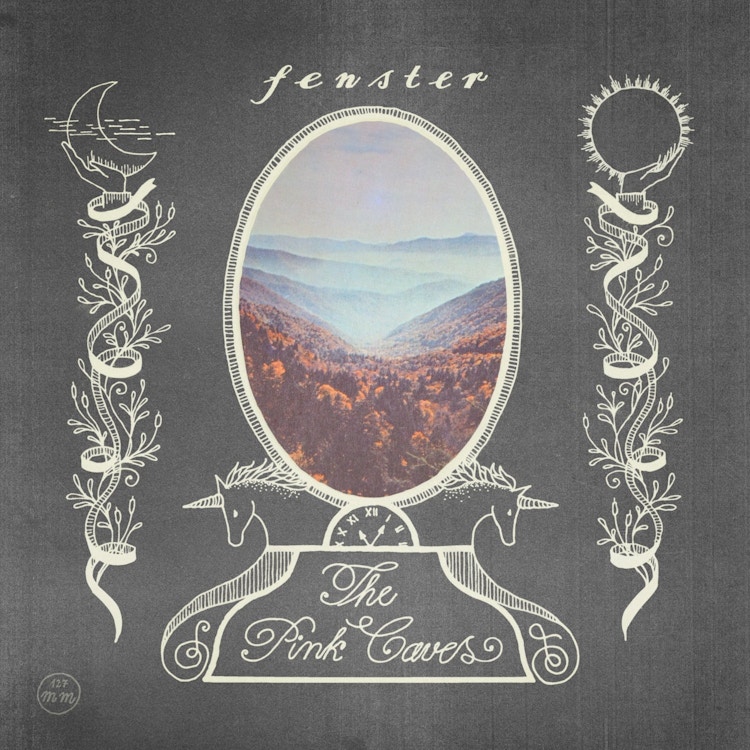"The Pink Caves"

With their second release, The Pink Caves, Fenster attempt to broaden not only their sonic pallet but their craft. Reportedly when setting up in an East German cabin, the band wired the entire house and in doing so managed to incorporate the building itself into the recordings. Not only do the tracks share the ethereal production quality, they do indeed sound as though recorded in the same place. Their fragmented influences; the surf tremelo on “Cat Emperor”, the Basinski style disintegration on “Hit & Run”and the archaic synths throughout all add up to give the album a scrapbook style feel, but the album’s distinctive sonic character helps foster a sense of cohesion between these avant-pop jams.
The immediate reference point sonically is Blonde Redhead’s excellent Misery Is A Butterfly; it’s got the same chamber pop meets art rock feel, similar nebulous reverb, similar vocal effects. Much like that album, there’s also a filmic quality to this. Tinged with a melancholic romanticism, the tracks, - while not explicity – certainly imply something scenic.
The repetition and minimalist pop songwriting techniques only serve to further the gloaming quality present throughout. The dirge-like pace of tracks like “The Light”, coupled with its cavernous spaces, push the soporific quality of the album into the territory of nightmares. A very specific type of nightmare, however; not so much the intense fear associated with ghouls ,violence and death, but the insidious dread of drowning, losing someone or losing yourself. Disquiet hovers in the tails of the reverb.
In spite of this, however, the band still do find time for a few moments of light; in particular “Mirrors”, with its rolling rhythms and sun-kissed aesthetic, comes as a welcome respite between the albums two most ominous tracks.
The influence of Angelo Badalamenti can be felt throughout the album, which perhaps goes some way to explaining the feeling of unease. Much like the iconic Twin Peaks soundtrack, the here music feels familiar but at the same time, not quite right. Augmented by discords and unusual production, what was once familiar feels strangely distant. The album bears an uncanny resemblance to pop music, but pop it is definitely not. In many ways it stands above pop music. By embracing its idiosyncrasies – the idiosyncrasies of the space, the band, the technology – Fenster have personalised what could be considered a very generic form. But at the same time it sits beneath pop, staring up at it with a mix of admiration and distaste. The songs are much more complex and nuanced than one might expect on first listen and, like most good music, it is an album that deserves deeper comprehension.
Get the Best Fit take on the week in music direct to your inbox every Friday

Tunde Adebimpe
Thee Black Boltz

Julien Baker & TORRES
Send A Prayer My Way

Bon Iver
SABLE, fABLE





